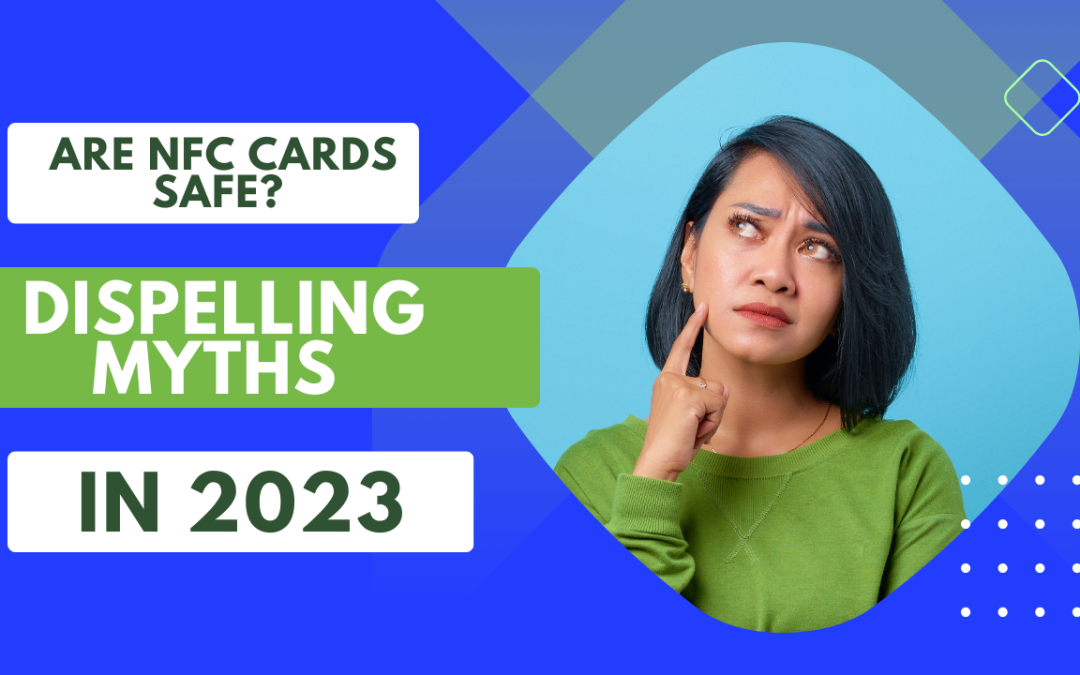Imagine a world where transactions occur with a simple tap of a card. Sounds futuristic, right? But guess what? We’re living in that world right now! That little piece of plastic you tap on the terminal? It’s called an NFC Card. Now, you might’ve heard some naysayers talking about the safety of these cards. Today, we’re going to delve deep into this topic. Let’s separate fact from fiction and answer the burning question: Are NFC Cards safe?
What are NFC Cards?
NFC stands for Near Field Communication. Think of it like a secret handshake between your card and the terminal. Only they’re in on it, and it happens super-fast. These cards use a tiny chip to communicate with contactless readers. No swiping or dipping required! Pretty cool, right?
The Security Behind NFC Cards
Security is Key. It’s like having a lock on your front door. And Near Field Communication cards? They’ve got some robust locks. Each transaction produces a one-time code, ensuring that even if someone intercepts it, it’s useless for future transactions. It’s akin to someone stealing an expired password – not much they can do with it!
Myths About NFC Cards
There are plenty of myths swirling around about Near Field Communication Cards. Let’s bust a few, shall we?
Myth 1: Anyone can intercept the NFC signal! Fact: The range is so short (that’s why it’s called Near Field Communication). Eavesdropping is extremely challenging, and even if they manage to, they’d get that “expired password” we talked about.
Myth 2: If I lose my card, someone can tap away all my money! Fact: Just like other cards, there are limits to contactless transactions. Plus, banks monitor suspicious activities. Lost your card? Report it!
How NFC Cards Compare to Traditional Cards
Imagine Near Field Communication Cards and Traditional Cards as two siblings. The older one (Traditional Card) is reliable but a tad slow (always swiping and dipping). The younger one (NFC Card) is swift and trendy, with that tap-and-go magic. While they’re both from the same family (secure banking methods), the younger one’s just a bit more tech-savvy!
Tips to Keep Your NFC Card Safe
- Treat it Like Cash: If you lose it, report it!
- Check Statements Regularly: Spot anything fishy? Call your bank.
- Use Protective Wallets: Some wallets offer RFID protection, adding an extra layer of security.
Common Misconceptions
- They’re easy to hack: Not true! With the one-time code feature, hacking is a tough game.
- They’re only for the tech-savvy: If you can tap, you’re qualified!
The Future of NFC Cards
With advancements in technology, Near Field Communication Cards are only bound to get safer and more prevalent. Imagine a world where everything’s just a tap away. Oh, wait, we’re already stepping into it!
Benefits Over Risks
Every coin has two sides. While there are risks (as with anything valuable), the benefits of convenience, speed, and enhanced security features make NFC Cards a worthy addition to our wallets.
Trusting Technology
Remember when online banking was a new thing, and we were skeptical? Now, it’s second nature. Similarly, NFC Cards are just another technological advancement that’ll soon be commonplace. So, let’s trust a bit more and fear a bit less!
Conclusion
So, there you have it! NFC Cards are not only cool but also safe. They’re like the superheroes of the banking world – swift, efficient, and always looking out for security threats. Next time you tap, do it with confidence!
FAQs
1. Are NFC Cards the same as RFID Cards? No, while they both use radio waves, NFC is a subset of RFID designed specifically for secure transactions.
2. Can I have both NFC and traditional features on one card? Absolutely! Many banks offer dual-feature cards.
3. Do all merchants accept Near Field Communication Card payments? Not all, but the number is growing rapidly! Always good to check.
4. What if my NFC Card is damaged? Just like any other card, if it’s physically damaged, you might need a replacement.
5. Are NFC Cards the future of banking? While it’s hard to predict the future, the increasing adoption rate suggests they’re here to stay!





Zaproxy dolore alias impedit expedita quisquam.